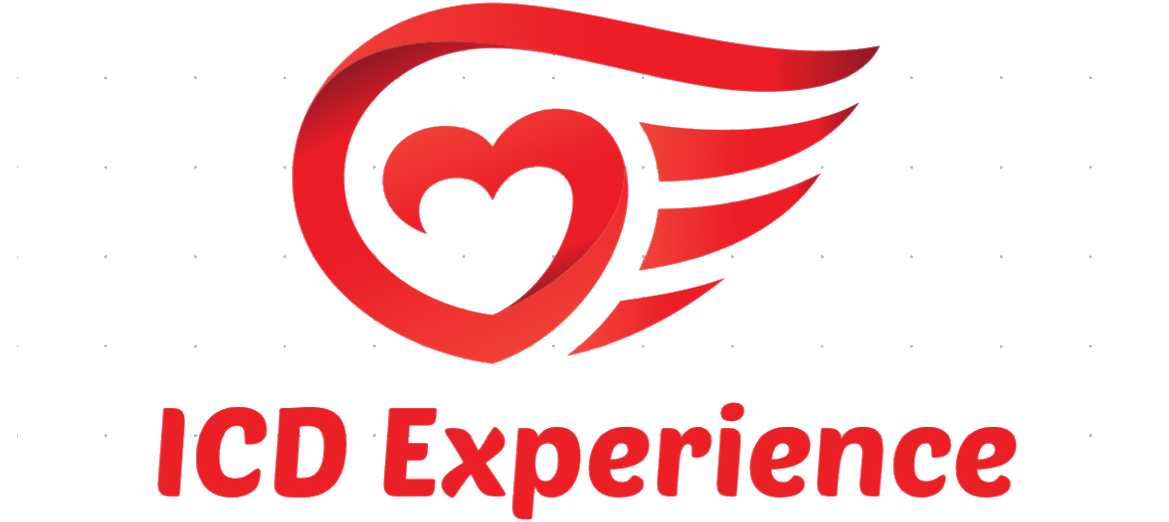The implantable cardioverter defibrillator (ICD) is a device that saves lives by monitoring and regulating heart rhythms in patients with severe cardiac conditions. However, ICDs can experience technical issues or malfunctions that may lead to recalls or safety alerts. Staying informed about these recalls and alerts is essential for patients to maintain confidence in their devices and ensure their safety. This guide will explore the importance of staying informed, how recalls are handled, and the steps patients can take to stay updated on the latest safety information.
ICDs have transformed cardiac care, providing a vital safety net for patients at risk of sudden cardiac arrest due to life-threatening arrhythmias. However, like any sophisticated medical technology, ICDs can encounter problems that require prompt attention. Manufacturers and regulatory agencies work to identify and address any defects or issues quickly. Despite these efforts, patients and healthcare providers need to stay informed about changes or updates concerning ICD safety and performance.
Understanding ICD Recalls
Manufacturers initiate ICD recalls when they identify a potential risk or defect in a particular model or batch of devices. These recalls usually occur in collaboration with regulatory bodies such as the U.S. Food and Drug Administration (FDA). The goal is to protect patients from potential harm by removing or repairing the affected devices. Recalls can range from minor software updates to complete removal and replacement of the ICD.
Several reasons can lead to an ICD recall. One common reason is a malfunction in the device’s hardware, such as a battery failure or a lead fracture. Software issues, including incorrect data interpretation or delayed therapy delivery, can also prompt recalls. Sometimes, recalls happen due to problems identified during post-market surveillance, where real-world data reveals unexpected issues not seen during clinical trials.
The Role of Regulatory Agencies
Regulatory agencies like the FDA oversee ICD recalls to ensure patient safety. They evaluate the safety and effectiveness of ICDs before approval and continue to monitor their performance once they are on the market. When a potential issue arises, the FDA works with the manufacturer to assess the risk and determine the appropriate action.
The FDA categorizes recalls into three classes based on the severity of the risk. Class I recalls involve situations where there is a reasonable probability that the device’s use will cause serious adverse health consequences or death. Class II recalls are for devices that may cause temporary or medically reversible adverse health consequences, while Class III recalls involve devices that are unlikely to cause adverse health consequences but violate FDA regulations.
Read now: Managing Anxiety with an ICD: Effective Techniques
The Importance of Staying Informed
For patients with an implantable cardioverter defibrillator, staying informed about recalls and safety alerts is crucial. Awareness of potential risks and issues allows patients to take proactive measures to ensure their safety. Ignorance of a recall or safety alert could lead to serious health consequences, especially if the ICD fails to perform as intended during a critical moment.
Staying informed also empowers patients to participate actively in their healthcare decisions. Knowledgeable patients can engage in more meaningful discussions with their healthcare providers. This collaborative approach to care fosters trust and helps ensure that patients receive the best possible treatment and support.
How to Stay Informed
Several effective methods exist for patients to stay informed about ICD recalls and safety alerts. The first step involves maintaining regular communication with healthcare providers. Cardiologists and electrophysiologists typically receive information about recalls and safety alerts first and can provide guidance on necessary actions. Regular check-ups and device interrogations allow healthcare providers to monitor the ICD’s performance and address any concerns promptly.
In addition to relying on healthcare providers, patients can use various online resources to stay updated. The FDA’s Medical Device Recall Database offers a comprehensive list of medical device recalls, including detailed information about the affected products, reasons for the recall, and recommended actions. Patients can search this database to determine if their ICD model is affected and learn about any necessary steps they need to take.
Subscribing to newsletters or alerts from trusted organizations such as the American Heart Association or the Heart Rhythm Society can also provide valuable information about ICD recalls and safety updates. These organizations often disseminate timely information to their members and the public, helping to ensure that patients and healthcare providers are aware of the latest developments.
The Role of Manufacturers
ICD manufacturers hold significant responsibility for ensuring the safety and effectiveness of their devices. When they identify a potential issue, they must promptly investigate the problem, assess the risk to patients, and take appropriate corrective actions. This process may include issuing a recall, providing software updates, or offering device replacements.
In addition to addressing recalls, manufacturers must communicate effectively with patients and healthcare providers. Clear and transparent communication ensures patients understand the recall, the risks involved, and the steps they need to take. Manufacturers often provide detailed information through letters, websites, and customer support channels to assist patients in navigating the recall process.
Also read: Post-ICD Surgery Recovery: Managing Pain and Discomfort
Patient Advocacy and Support
Patient advocacy groups play a vital role in supporting individuals with ICDs, especially during recalls and safety alerts. These groups offer resources, information, and emotional support to help patients cope with the stress and uncertainty associated with device recalls. Connecting with others who have experienced similar challenges can provide a sense of community and reassurance.
Advocacy groups also work to ensure that patients’ voices are heard in discussions about medical device safety and regulation. By participating in advocacy efforts, patients can contribute to developing policies and practices prioritizing patient safety and well-being.
The Impact of Technology on Device Safety
Advancements in technology have significantly improved ICDs’ safety and performance. Modern devices have sophisticated features that enhance their reliability and effectiveness. However, these technological advancements also present new challenges in terms of recalls and safety alerts. As ICDs become more complex, the potential for software glitches or hardware malfunctions increases.
Manufacturers continually address these challenges by investing in research and development to improve device design and functionality. Enhanced monitoring and diagnostic capabilities allow for early detection of potential issues, reducing the risk of recalls. Additionally, manufacturers are leveraging technology to improve communication with patients, providing real-time updates and support through digital platforms.
The Role of Healthcare Providers
Healthcare providers play a crucial role in managing ICD recalls and safety alerts. As the primary point of contact for patients, they must communicate important information and guide patients through the recall process. Providers need to stay informed about the latest developments in ICD safety and be prepared to answer patients’ questions and concerns.
When a recall occurs, healthcare providers evaluate the risk to each patient and determine the appropriate course of action. This may involve scheduling additional follow-up appointments, adjusting device settings, or replacing the ICD altogether. Providers also educate patients about the importance of regular device check-ups and monitoring to ensure the continued safety and effectiveness of their ICDs.
Personal Responsibility and Vigilance
While healthcare providers and manufacturers play significant roles in ensuring ICD safety, patients also have a responsibility to remain vigilant and proactive in managing their devices. Regularly attending follow-up appointments, adhering to prescribed device settings, and promptly reporting any unusual symptoms or concerns to healthcare providers are essential steps in maintaining ICD safety.
Patients should also familiarize themselves with the basic functions and features of their ICDs. Understanding how the device operates can help patients recognize potential issues and seek timely assistance. Keeping a record of the device’s model and serial number, as well as contact information for the manufacturer and healthcare provider, can be invaluable in the event of a recall or safety alert.
Also check: What to Do After an ICD Shock
The Emotional Impact of Recalls
ICD recalls and safety alerts can be emotionally challenging for patients. Realizing that a device intended to protect their health may pose a risk can be distressing and anxiety-inducing. Patients may experience uncertainty, fear, or frustration as they navigate the recall process.
It is important for patients to acknowledge and address these emotions. Seeking support from healthcare providers, family, friends, or patient advocacy groups can provide reassurance and comfort during this difficult time. Open communication about feelings and concerns is crucial for maintaining emotional well-being and fostering a sense of empowerment. Learn more about controlling the emotional impact in our mental health category in our blog.
Learning from Past Recalls
Studying past ICD recalls and safety alerts can provide valuable insights into potential risks and areas for improvement. By analyzing the root causes of recalls, manufacturers and regulatory agencies can implement changes to prevent similar issues from occurring in the future. Lessons learned from past recalls also inform the development of new technologies and safety protocols.
Patients can benefit from understanding past recall incidents by gaining a deeper appreciation for the complexities of ICD safety and the importance of staying informed. Awareness of historical trends and patterns can help patients recognize potential warning signs and advocate for their safety.
The Future of ICD Safety
As technology continues to evolve, the future of ICD safety holds promise for even greater advancements. Artificial intelligence and machine learning are being integrated into ICD systems to enhance monitoring capabilities and predict potential issues before they arise. These innovations can revolutionize how ICDs are monitored and maintained, reducing the likelihood of recalls and improving patient outcomes.
Collaboration between manufacturers, regulatory agencies, healthcare providers, and patients will be essential in driving these advancements forward. By working together, stakeholders can create a culture of safety and innovation that prioritizes patient well-being and ensures the continued reliability of ICDs.
Conclusion
Staying informed about ICD recalls and safety alerts is a critical aspect of managing life with an implantable cardioverter defibrillator. Patients, healthcare providers, manufacturers, and regulatory agencies all play essential roles in ensuring device safety and addressing potential risks. By remaining vigilant and proactive, patients can protect their health and well-being while benefiting from the life-saving capabilities of their ICDs.
Ultimately, staying informed empowers patients to take control of their healthcare decisions and fosters a collaborative approach to managing their cardiac health. Through education, communication, and support, patients can navigate the challenges of ICD recalls and safety alerts with confidence and resilience.












